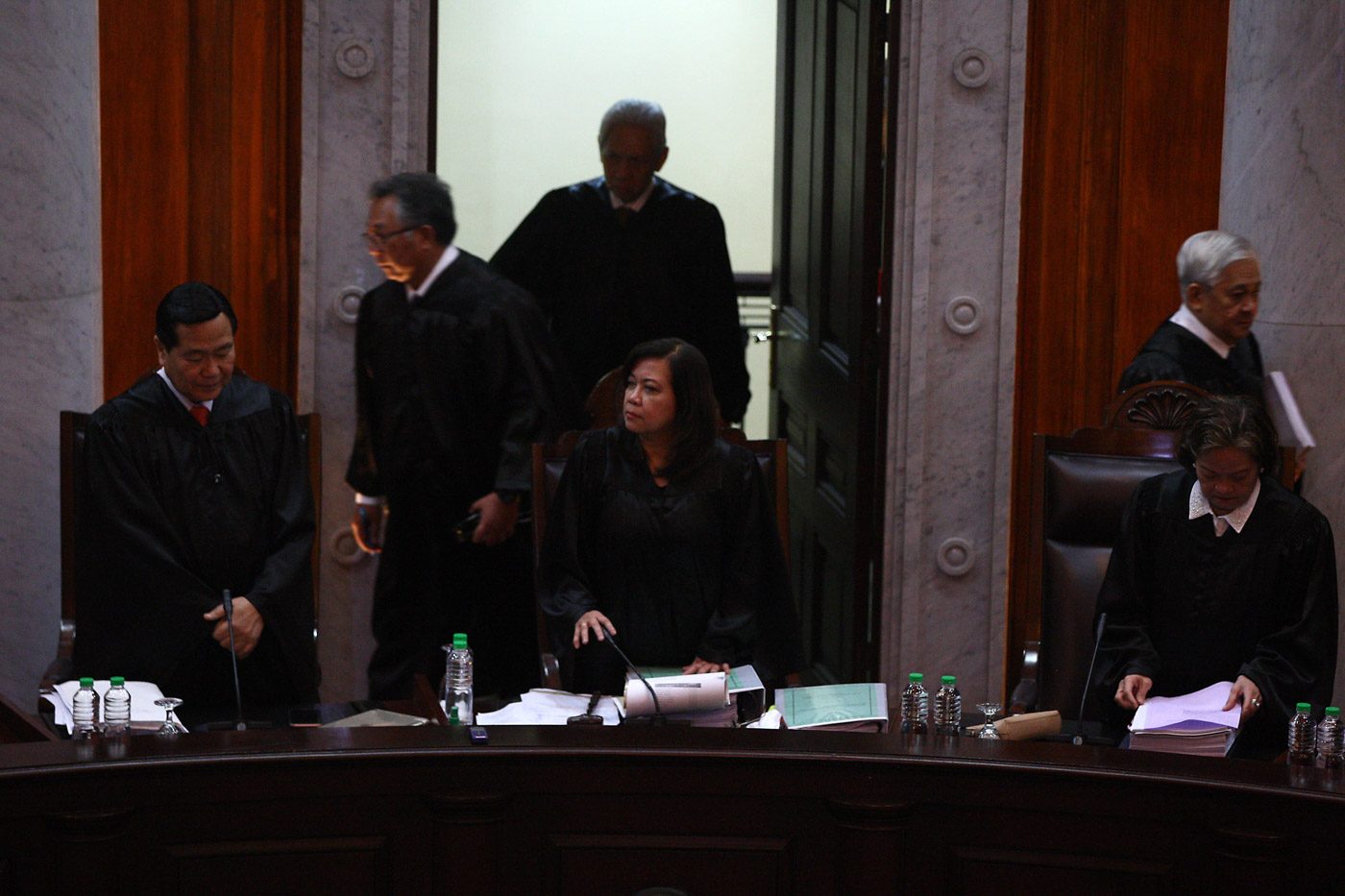SUMMARY
This is AI generated summarization, which may have errors. For context, always refer to the full article.

MANILA, Philippines – Chief Justice Maria Lourdes Sereno on Tuesday, November 21, questioned the Philippine National Police (PNP)’s “presumption of regularity” excuse in police operations when they kill their suspects.
Interpellating lawyers petitioning against the PNP-led drug war, Sereno asked Center for International Law (CenterLaw) counsel Joel Butuyan to illustrate the limitations of the presumption. (READ: Was the PNP’s war on drugs illegal? Here’s why lawyers think so)
“‘Pag namatay ba, ang mga husgado, sasabihin presume natin ang pagkamatay ay dahil sa isang regular discharge ng regular function ng police? Immediately ba dapat na i-assume namin na ang depensa ng self-defense ay automatic na maga-apply o sinasabi na ang pulis ay nanganganib ang buhay kaya nararapat niyang pangunahan?” Sereno asked.
(If someone dies, do we presume that it was a result of a regular discharge of function by the police? Do we immediately assume that the self-defense argument automatically applies or that [we believe] that police were really in danger so they had to pull the trigger first?)
Butuyan said no. According to him, as soon as police kill a suspect, they are also subject to legal scrutiny, putting the presumption of regularity into question.
The police had clung to the presumption in facing the deluge of irregularity accusations when they led the drug war. (READ: Duterte names PDEA as ‘sole agency’ for drug war)
The Chief Justice then added that the police have been mandated to prioritize capturing suspects over killing them. She pointed out that the killings and the need for self-defense should have been a “rare occurence”.
She also raised the possibility of having a “system” in killings as she continued to question Butuyan.
“So kung marami na po tayong nasasabi nating nanlaban, na sinasabi niyong maaaring libo-libo na po, ano pong masasabi ‘nyo rito? Magkakaroon na po ba tayo ng basehan na mayro’n po’ng sistema o pattern na po tayong nakikita sa mga nangyayari?” Sereno asked.
(So if we are saying that many have fought back, you said they’re thousands already, what can you say about this? Will we already have a basis for saying we’re seeing a system or pattern in killings based on what has been happening?)
Butuyan immediately agreed, saying: “May pattern po talaga, may policy ang gobyerno na itago ho ang lahat ng mga nangyari sa pagpatay ng pulis na libo-libo na po ang nangyayari.” (There really is a pattern, there is a government policy to hide the thousands of killings by police.)
According the PNP, from the beginning of their drug war in August 2016 up until September 2017, they have submitted only 10 inquest reports investigating police. (READ: Cops are paid to kill in PH war on drugs – Amnesty Int’l)
The rest have been allowed to leave crime scenes unquestioned, after claiming that the suspects they were about to capture fought back (‘nanlaban’), an excuse that half of Filipinos reportedly do not believe. – Rappler.com
Add a comment
How does this make you feel?
There are no comments yet. Add your comment to start the conversation.